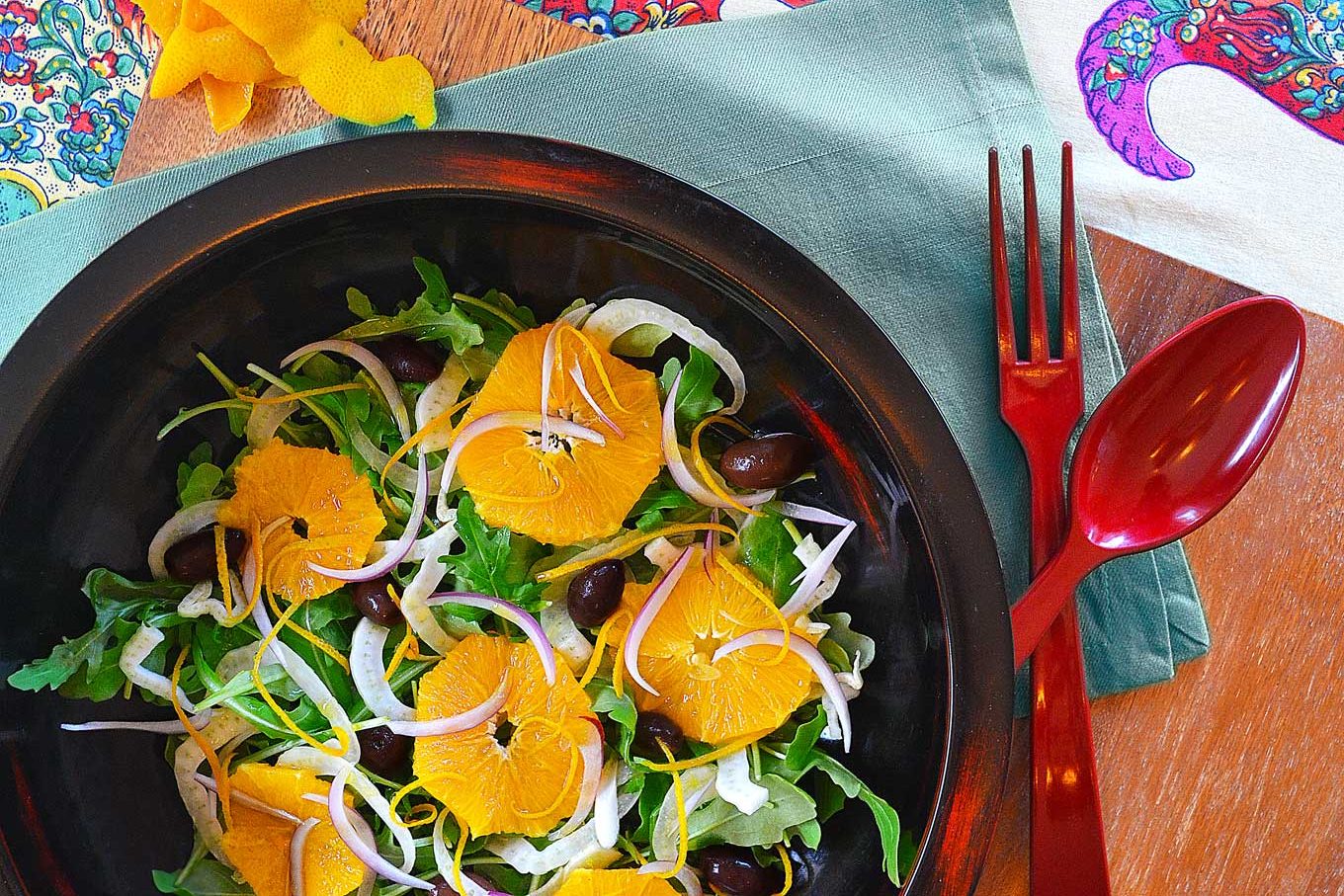
This fennel, orange & kalamata olive salad has really changed things for me.
I never use to think much of salads, you see. I attribute this to being Italian, where the word salad is too often synonymous with leafy greens, tomatoes, extra virgin olive oil and vinegar. On wild and crazy days, we add a little bit of thinly-sliced red onion to the mix. Woo hoo.
And while this rather Spartan combination can be a perfectly nice and refreshing offering sometimes, when consumed too often it can become a little like riding Disney’s “It’s a Small World” ride 74 times in a row. When it’s 101°F. With 90 percent humidity. And you’re overdressed.
Too much of an ok thing, I’d say.
As it turns out, Italians have not strayed far from their cultural roots when it comes to salad. Dating back to Roman times, people foraged on mostly fresh greens topped with a dressing made of oil, vinegar and copious amounts of salt or some sort of brine solution. Because the resulting salads were very pungent, they became known as herba salata in Latin, which literally translates to ‘salted herb.’ That’s exactly how a plain salad begins to taste like when eaten too often!
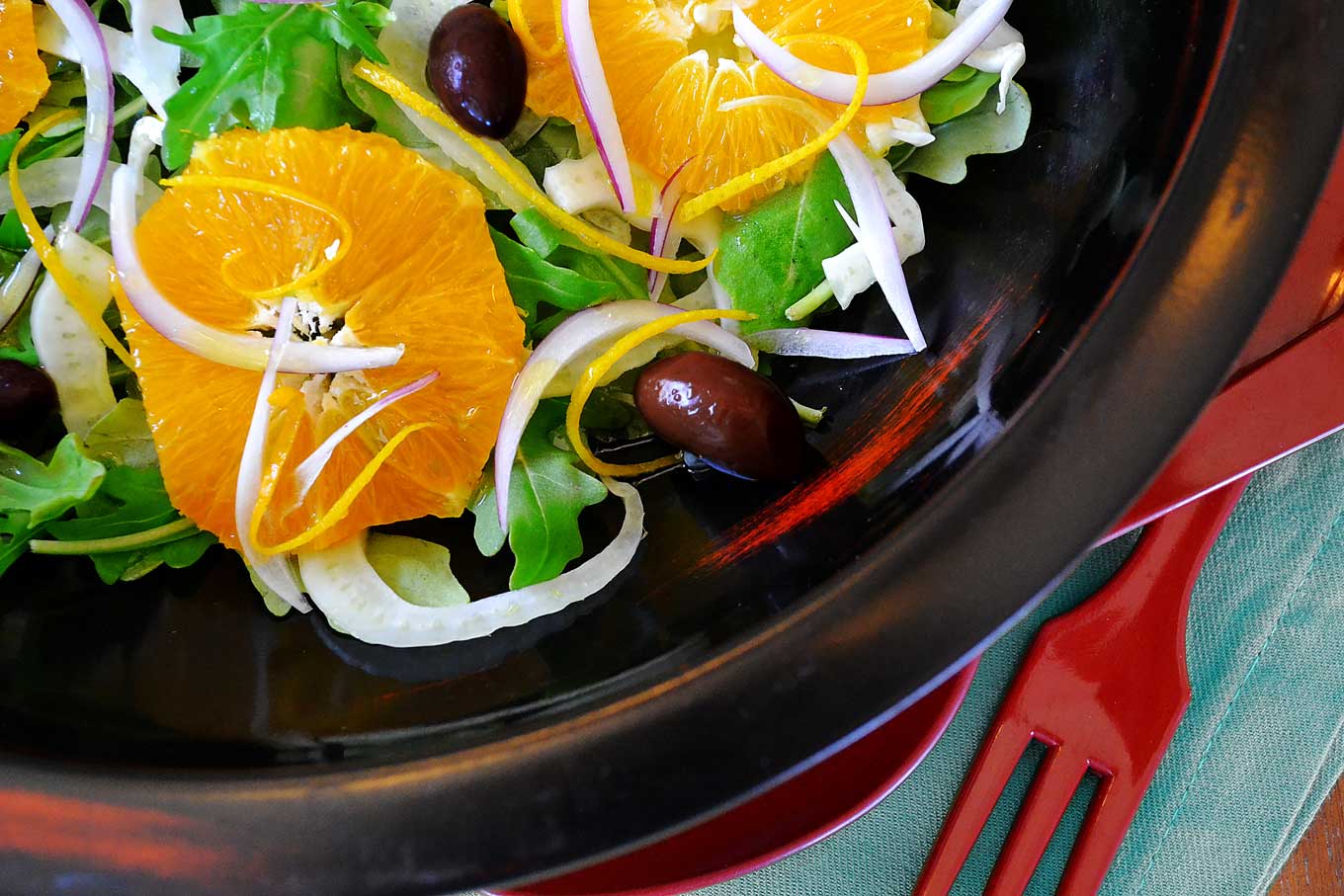
I know this salad all too well, because it was the only game in town in my family. My mother, an agile and versatile cook, regaled us with a scrumptious variety of pastas, roasts, stews, soups and desserts. Her salad, on the other hand, was always the same. Herba salata.
It often felt like an afterthought… merely a speedy way to integrate some fresh vegetables into our meal. I know that it wasn’t, really. The Italian diet is varied in so many ways, you see, that a humble salad tends to take a back seat to all the other tantalizing dishes at the table, and so becomes ‘just a salad.’ It’s an expected part of a complete meal that neither elicits squeals of delight nor groans of dread. Because it’s just a salad. Even so, I eventually began to pick at it politely.
Salads can be so much more than that.
I discovered this myself years ago when I lived a few doors down from a Lebanese family in Princeton, NJ. We ended up being neighbors for only a year, but we maximized our time together by frequently exchanging dinner invitations. Among the various Lebanese specialties I was lucky enough to sample during that time, I tasted a simple yet zesty salad that completely captured my imagination.
Until then, the only salads that had elicited any blip of enthusiasm on my part had been consumed at restaurants, generously accessorized with gorgonzola and crispy bacon bits or feta cheese. And yet I was being bedazzled by a salad that had no cheese or bacon whatsoever. It offered no creamy, otherworldly dressing. In its stead, it offered walnuts, dried cranberries, minced garlic and lemon juice. That’s it.
I felt like Helen Keller on the night I ate it. Or at least how I imagined she’d felt the moment she made the connection between signing the word water and the actual water pouring on her hands at the pump. Disbelief. Bewildered excitement. And a newfound awareness of the possibilities before her.
With few ingredients, my wonderful neighbor had managed to juxtapose the sweetness of the dried cranberries with the pungency of the garlic and the tartness of the lemon juice. The resulting salad just popped, waking the senses with its freshness and boldness. The leafy greens were still in there, but they now had dimension. They no longer felt like an all too familiar partner. They were now an exotic, well-dressed blind date with an incredible sense of humor and an alluring manner. They became memorable.
And something worth thinking about.
——
I especially like eating this salad when I am eating spicy food because it is so refreshing and cooling on the palate. The sliced oranges give you a burst of delicious juice with every bite you take, and the savoriness of the olives and the pepperiness of the arugula brings out the sweetness of the fennel.
And speaking of fennel…it’s a funny thing, because as delicious as it is, many people don’t know what it is. I usually need to tell the supermarket cashier what it is in order for it to be rung up. If you’re unfamiliar with this root vegetables, you may want to check out this article by the ever-helpful The Kitchn. Also, here is a super helpful video on how to slice fennel, though I would recommend slicing the bulb much thinner than this gentleman is doing. I also remove the outer layer of fennel systematically. I have yet to buy one at the market that looks so perfect that I feel compelled to just peel the dark areas.
But anyway…let’s begin.
making fennel, orange & kalamata olive salad
Using a peeler, remove half of the rind of 1 naval orange.
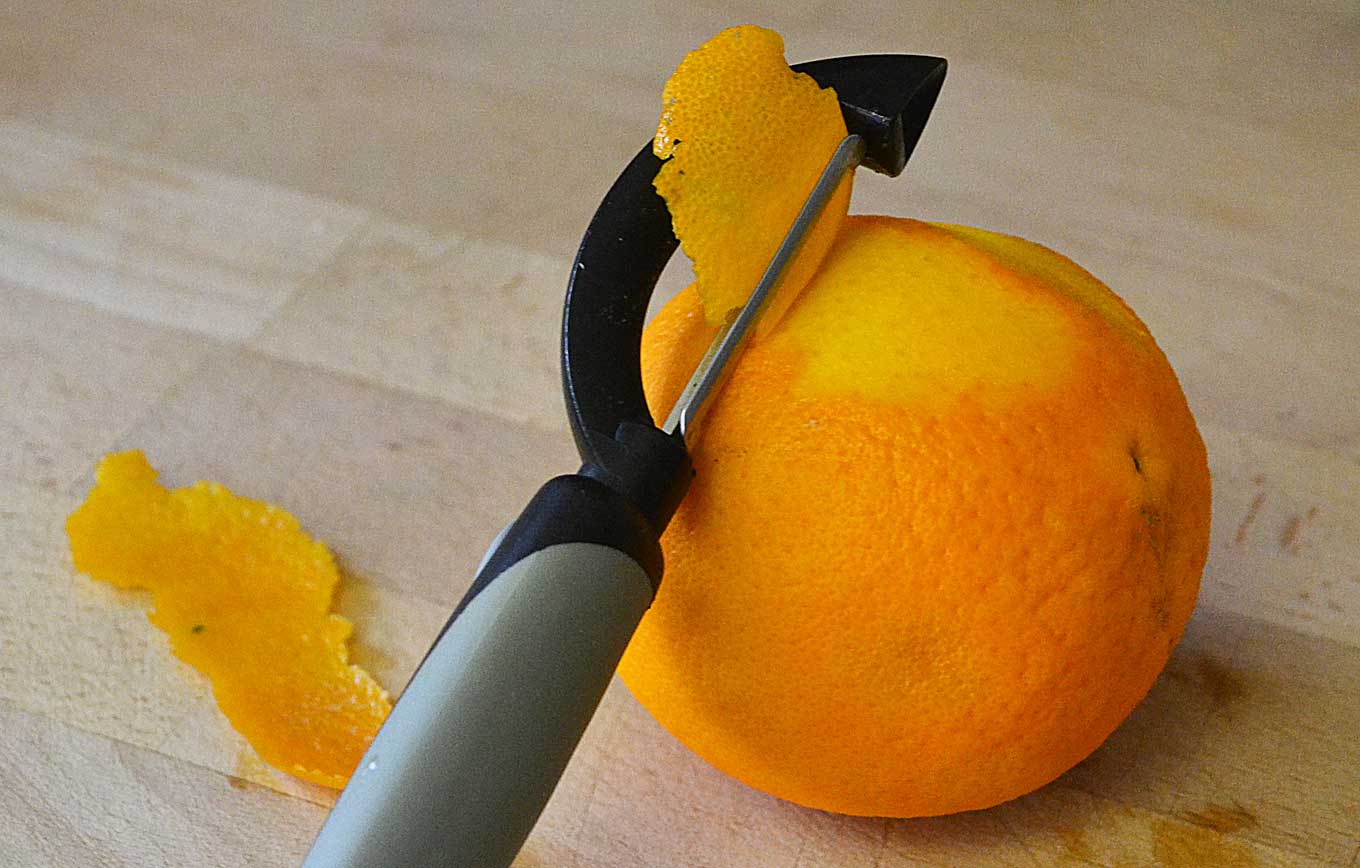
Add the rind slices to a small pot of boiling water.
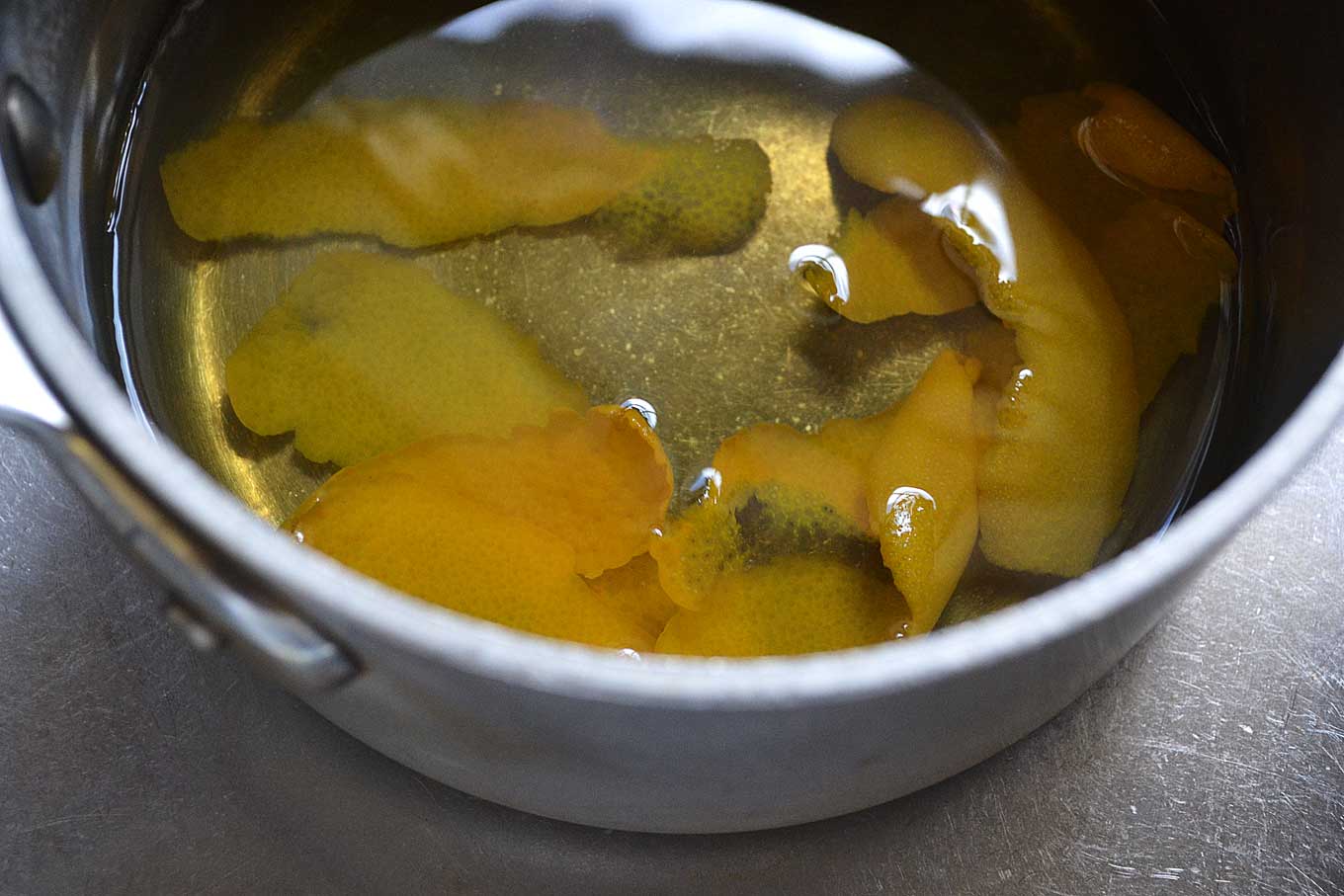
Cook for 5 minutes, drain well on paper towel and allow to cool.
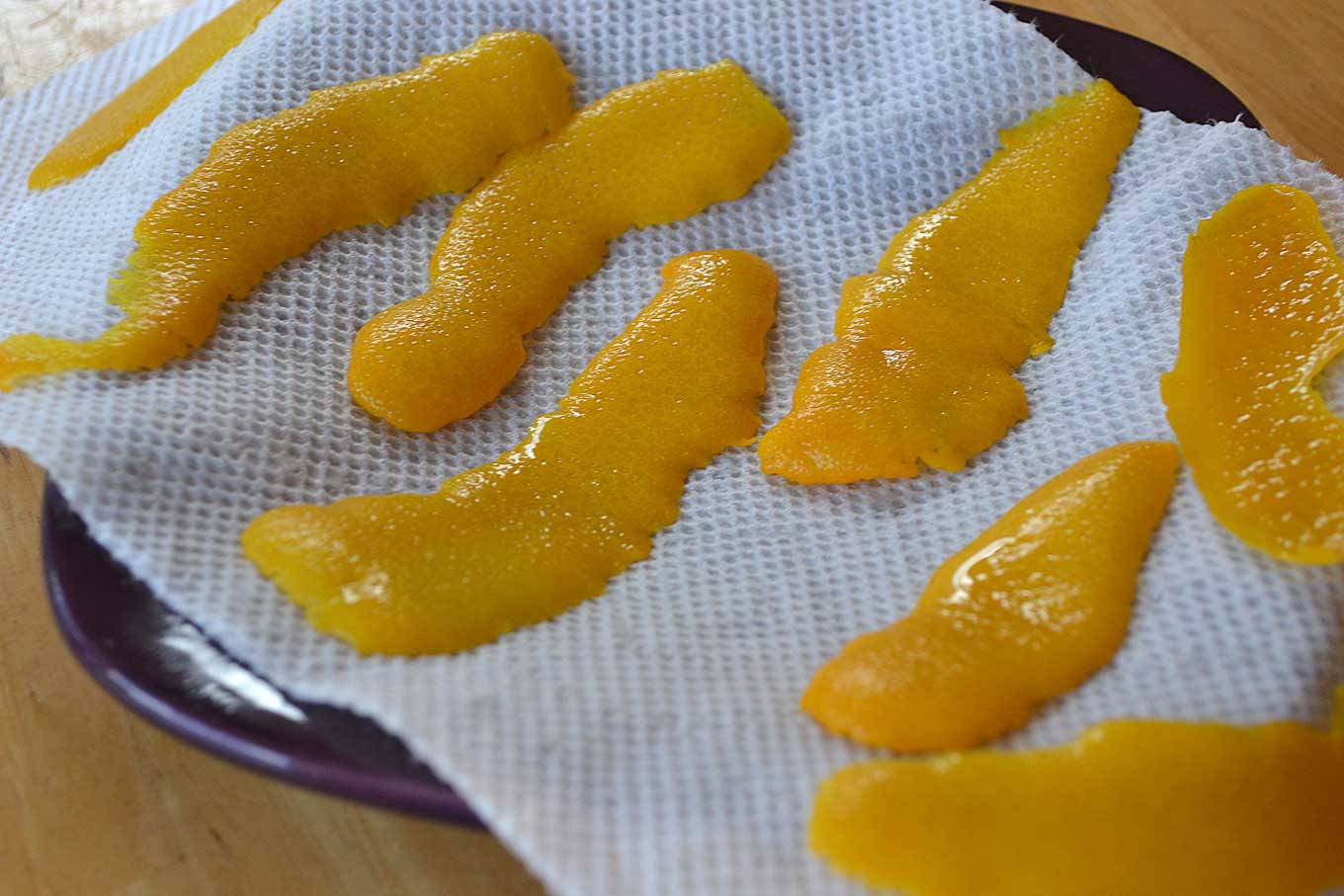
Cut the rind pieces into very thin julienne strips. Set aside.
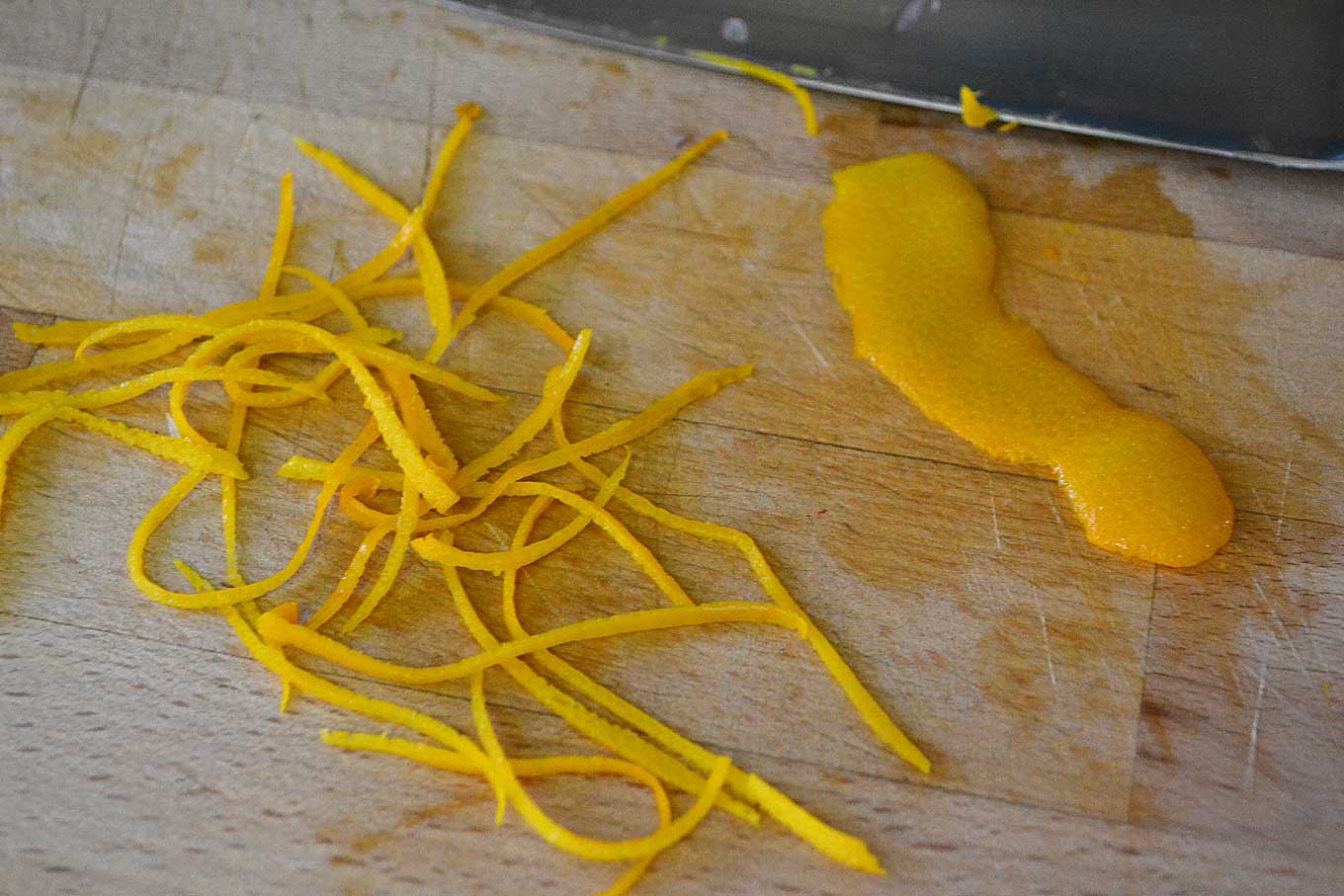
With a serrated knife, remove the rest of the rind from the first naval orange and an additional naval orange, for a total of 2. Make sure to remove the pith, or white membrane, surrounding the oranges as it is bitter.
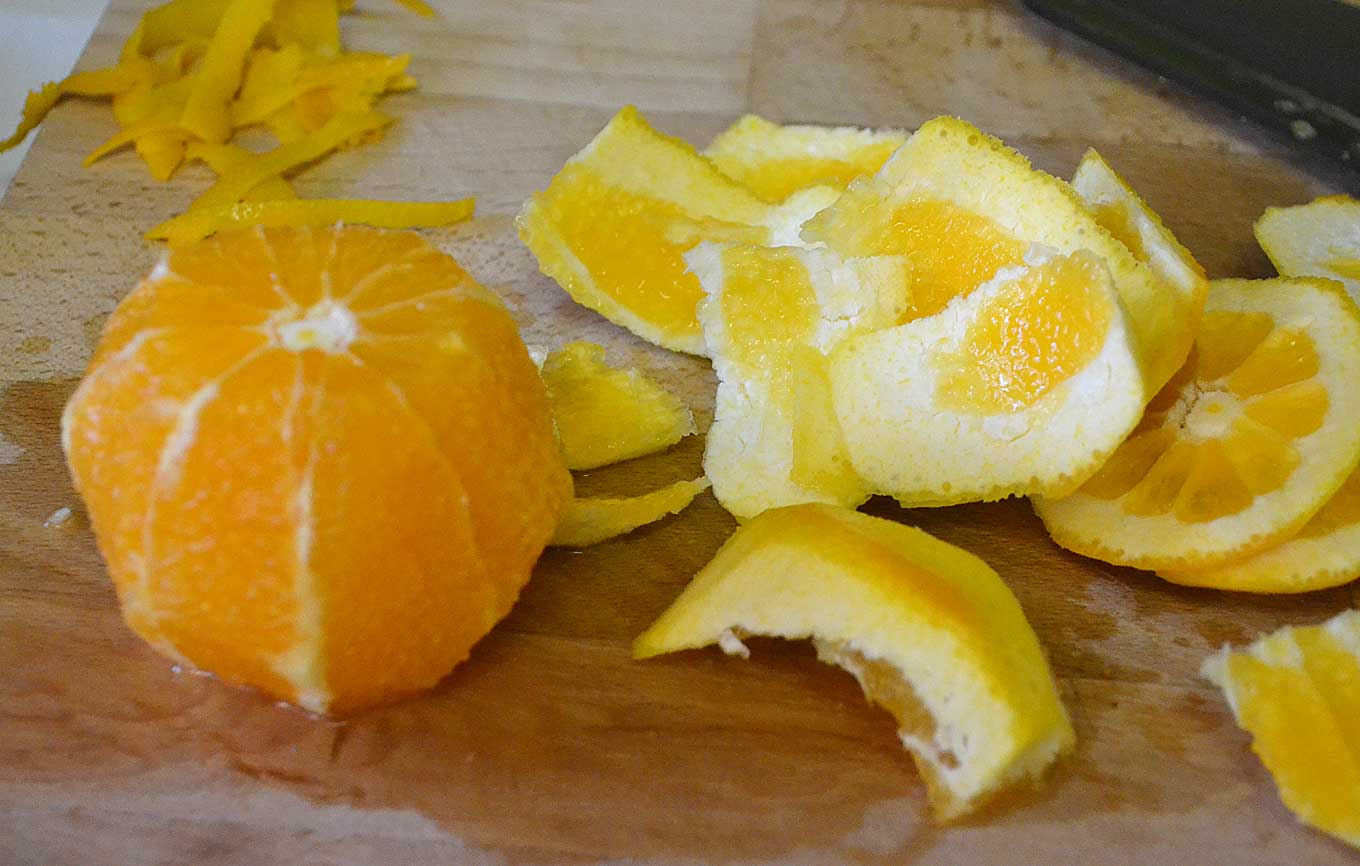
Now slice them into very thin medallions and remove any seeds.
Cut the base of 1 fennel, remove the first layer or two and then slice it in half. Remove the hard base by making a v-shaped incision around it.
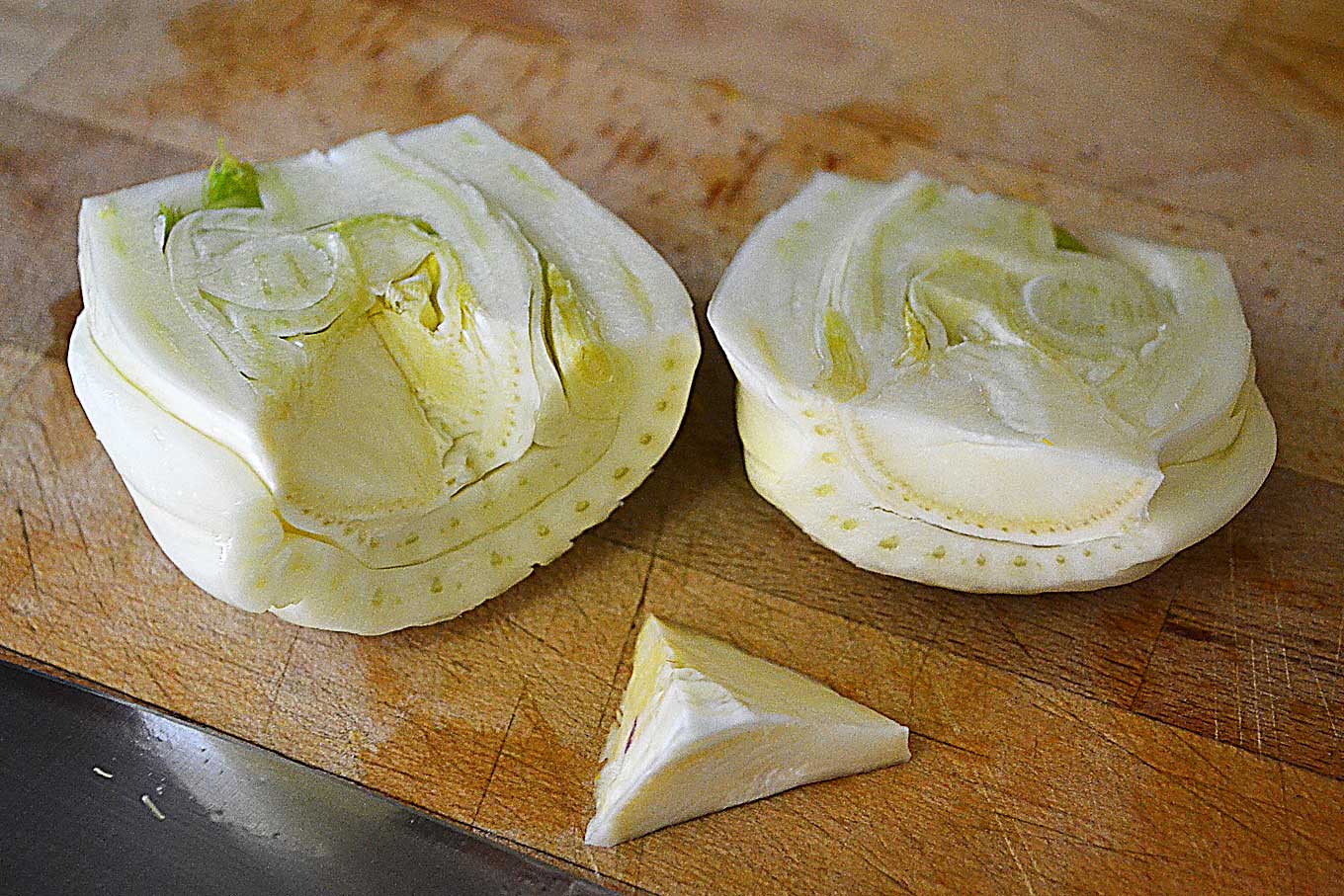
Now place each fennel half on a cutting board, cut side down, and slice as thinly as possible.
Place 3 oz. of arugula, the fennel slices and a handful of very thinly-sliced red onion in a salad bowl.
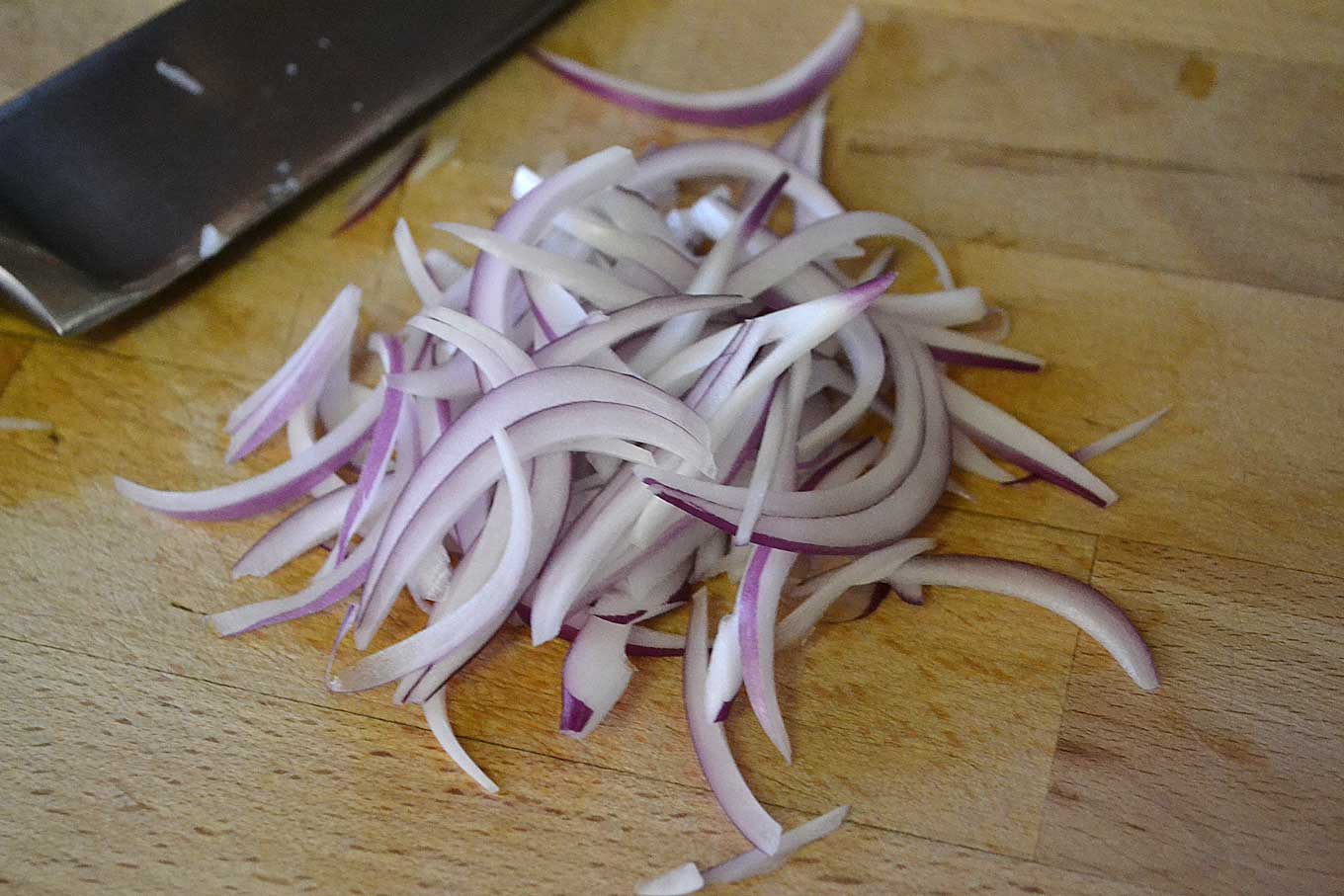
Add 3 tablespoons of extra virgin olive oil, 1 tablespoon of apple cider vinegar (more if desired), and sea salt and freshly-cracked pepper to taste and mix well. Arrange the orange medallions on top, along with the cooled orange julienne strips and 1/3 cup of Kalamata olives. Makes 6 servings.
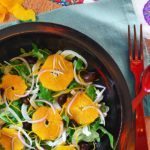




One click submission to 1000 business directories here-> http://addwebsitetodir.rt32.xyz